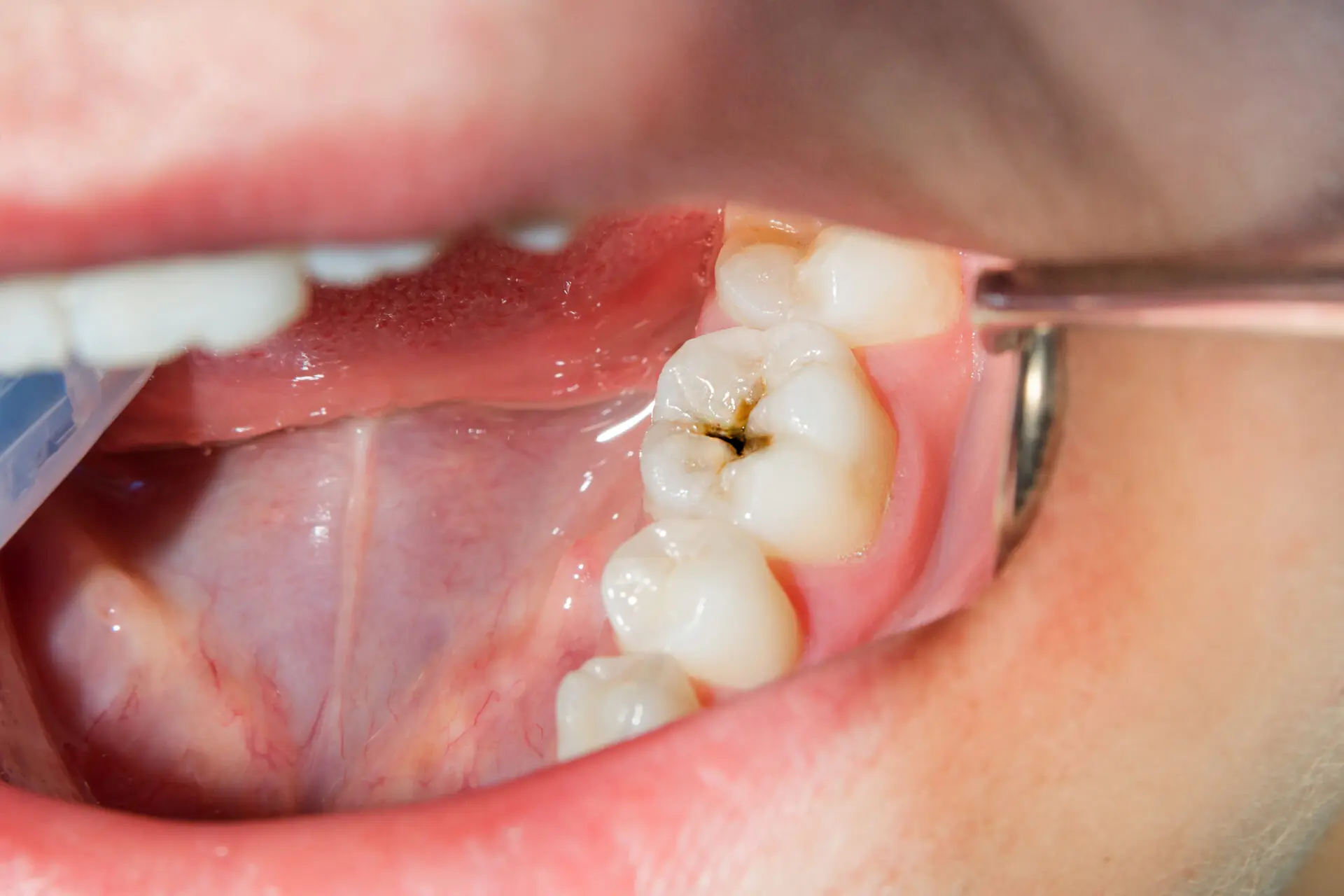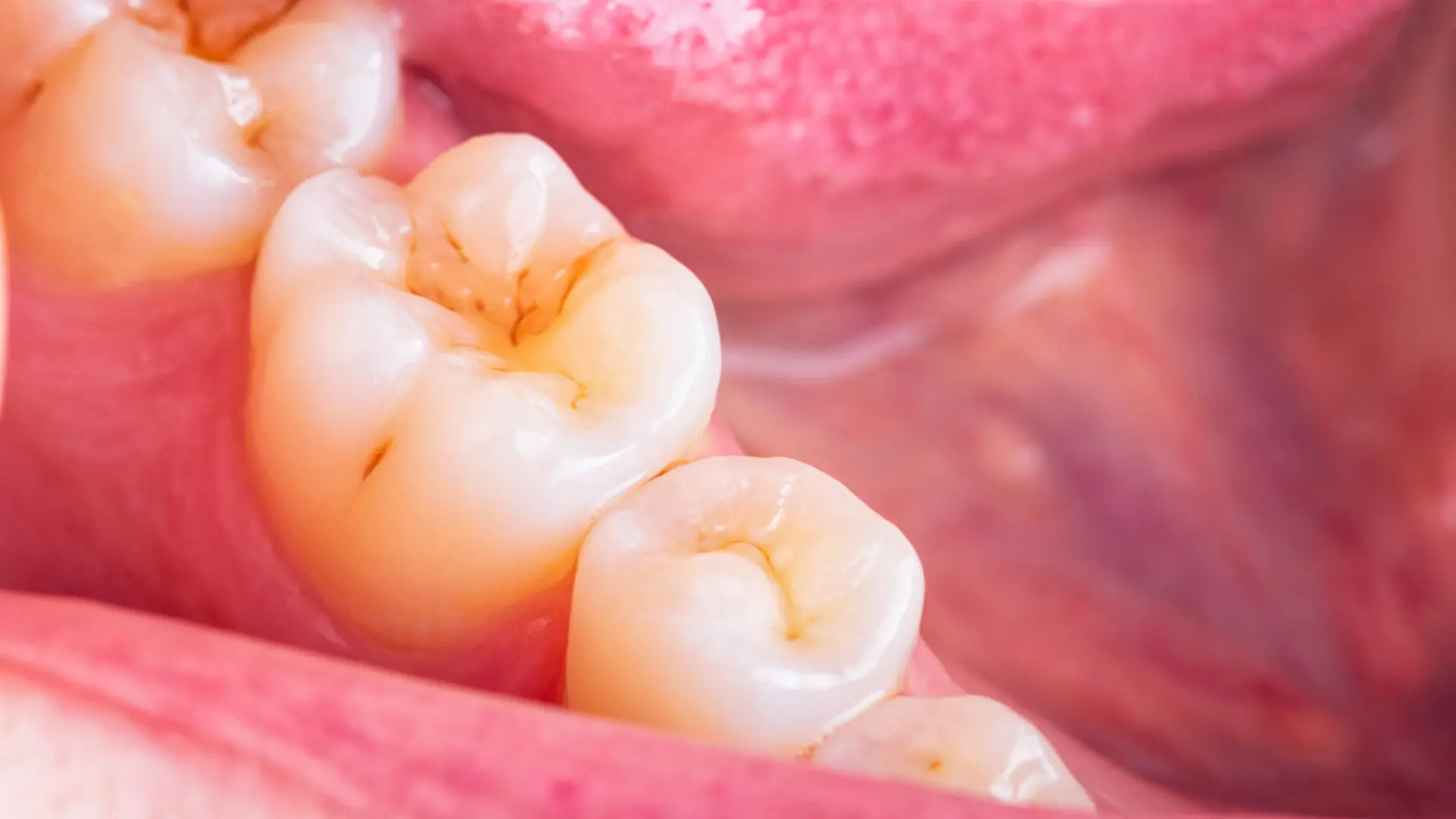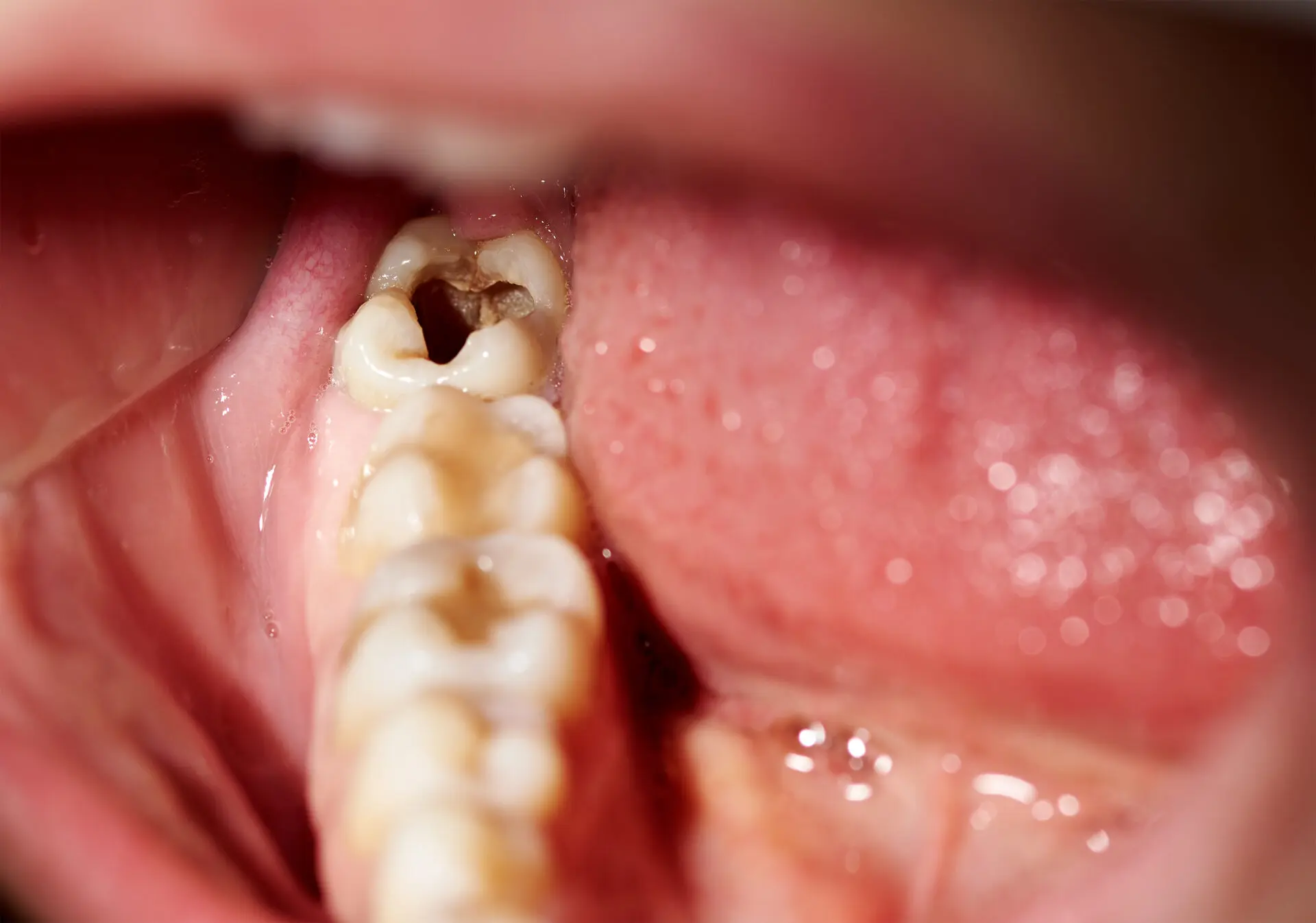
06 Oct How Long Can a Cavity Go Untreated?
A smile speaks a thousand words, but what if a cavity is hindering your confidence to flash those pearly whites? “Why does my tooth hurt?” you wonder.
If you’ve ever found tooth pain comes and goes in waves, or thought, “my teeth hurt,” or “my tooth hurts,” chances are you might be dealing with a cavity or tooth decay symptoms. But how long can you push the boundaries before seeking treatment? This blog post dives deep into the realm of untreated cavities, offering answers to the most pressing questions.
What Does an Early-Stage Cavity Look Like?
In the early stages, cavities may not present with overtly noticeable symptoms, but subtle signs can give them away. A small hole in the tooth, called a white spot, begins as a white mark on the tooth’s surface. This white spot is an indicator of enamel demineralization.
If you closely inspect your teeth and see these white spots, it’s an early sign of decay. Good news! Dental care and fluoride treatment can still stop or reverse decay. However, without appropriate attention, these spots can progress and lead to the formation of cavities.
While pain and sensitivity are common symptoms associated with cavities, these typically do not manifest during the earliest stages of decay. This is why regular dental check-ups are so crucial — they help detect and address cavities before they become problematic.
Is a Black Spot on the Tooth a Cavity?
The appearance of a black spot on a tooth can cause concern. A black or dark brown spot often indicates that the decay process has progressed. In most cases, such a spot is indeed a cavity. The color comes from bacteria breaking down the tooth, causing it to darken and become damaged.
However, there are a few other possible causes of black spots. Certain foods, drinks (like coffee, tea, and red wine), and tobacco can cause external stains on your teeth. Plaque hardens to form tartar, which can appear as black or dark brown spots if you do not remove it.
An injury or trauma to the tooth can cause internal bleeding, leading to a darkened appearance. Over time, older fillings or dental restorations may darken or become discoloured.
If you notice a black spot on your tooth, it’s essential to consult with an expert dentist to determine the cause. Finding and treating dental problems early can prevent more serious issues and discomfort in the future.
How urgent is a hole in tooth?
You might be wondering can cavities heal themselves? It’s tempting to think, “It’s just a tiny hole; it can wait.” However, neglect can lead to severe consequences.
If you notice any tooth decay symptoms or suspect you might have a cavity, don’t delay. Visit your local dentist to get a comprehensive checkup.
Filling cavities can often be an easy sensitive teeth remedy. If you’re searching for a dentist in West Kelowna, True Dental is taking new patients now!
How do you know if cavity pain is serious?
A common sign that might point towards a cavity is the presence of black spots on teeth. However, all black spots on teeth aren’t necessarily cavities. Other symptoms include:
- Tooth pain: This pain often comes and goes in waves.
- Cold sensitivity after filling or even without any fillings.
- Constant sensitivity: When your teeth are sensitive, especially to cold and hot temperatures.
- Bad breath: Yes, cavities can cause bad breath!
If you’re in the West Kelowna area and need urgent professional care, reach out to an emergency dentist in Kelowna. At True Dental, we’re the expert West Kelowna Dentist and are here to treat your cavity right away!
What happens if you don’t fill a cavity?
Ignoring a cavity isn’t the best choice. Untreated cavities can:
1. Lead to more cavities: Contrary to some myths, cavities can’t heal themselves.
2. Cause more pain: The longer a cavity remains untreated, the deeper it goes, causing tooth pain that intensifies over time.
3. Result in gum diseases: Ignoring cavities can lead to gum diseases which, in turn, can cause further complications.
4. Oral health affects overall health. Untreated dental problems can cause various health issues.
Many people wonder on a side note, “are cavities contagious?”. Surprisingly, saliva can transfer the bacteria that cause cavities, so it’s best to get them treated early!
What does an untreated cavity feel like?
- Tooth pain: This isn’t your ordinary pain. Think of it as waves of discomfort, sometimes so intense that it’s hard to concentrate on anything else.
- Sensitivity: Your teeth might become extremely sensitive, particularly to cold items.
- Do cavities cause bad breath? Yes bad breath and an unpleasant taste can also be a symptom.
But worry not. If you’re struggling with pain and wondering how to stop sensitive teeth pain immediately at home, read our blog. While these can provide temporary relief, it’s always best to consult with a dentist in Kelowna for long-term solutions.
How long does it take for a cavity to destroy a tooth?
The timeline varies based on several factors, including your oral hygiene habits, diet, and the initial size of the cavity. Small cavities might take months or even years to reach the inner layers of a tooth. However, larger cavities can cause significant damage in just a few months.
How bad does a cavity have to be to get pulled?
Tooth pain can be debilitating, but does a cavity always mean extraction? Not necessarily.
Cavities in their initial stages are treatable. However, if left untreated for too long, they can lead to extensive tooth decay, making it necessary for the tooth to be pulled out. The key is early detection and prompt treatment.
To Conclude
If you’re ever wondering what causes tooth pain, an untreated cavity is often the culprit. Cavities are common and ignoring them isn’t advisable. An untreated cavity can lead to severe complications, affecting not just your oral health but overall well-being.
If you’re experiencing tooth pain or suspect a cavity, don’t wait. Consult an emergency dentist in Kelowna.
Remember, your teeth play a crucial role in your daily life, from aiding in digestion to shaping your speech. Take good care of them, and they’ll serve you well for a lifetime. If you’re ever in doubt, it’s better to be safe and get it checked. After all, it’s always better to be proactive than regretful.





